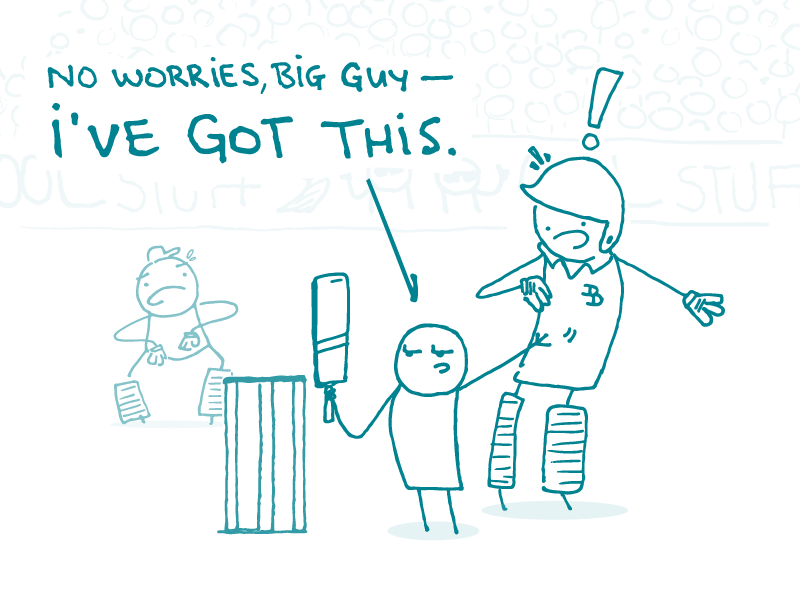
Picture this: you’re in the park and you come across some kids playing a sport you’ve never played before — let’s say cricket. They invite you to take a swing. Do you think, “there’s no way I can do this” or “I’ve totally got this”? If you said the latter, then you have high self-efficacy in this situation. (Whether or not you actually hit the ball, dear readers, is a different story.)
Self-efficacy is a person’s belief that they have the ability to succeed in a specific situation. Dr. Albert Bandura, the psychologist who first wrote about self-efficacy, theorized that people with high self-efficacy see a difficult task as one they need to work at — while those with lower self-efficacy might shy away from it altogether.
When it comes to health, people often avoid things they think are difficult — like getting more active. So what’s a health communicator to do?
- Encourage readers by breaking behaviors into small steps. “Getting in shape” may sound too vague or overwhelming. But a simple, concrete action step — like taking the stairs instead of the elevator — sounds doable.
- Offer suggestions for overcoming obstacles. For example, lack of time is a common barrier to physical activity. So you could encourage folks to multitask with active chores, or remind them that even 5 minutes of activity has health benefits.
- Make your content clear and easy to understand. Complicated language can make healthy behaviors seem complicated, too. So rather than telling people to “decrease sustained periods of sedentary behavior and increase intermittent bouts of aerobic exercise” (eep!), lead with clear and simple messages like “move more, sit less.”
The next time you’re creating health content, think to yourself: What can I do to help my audience feel more confident that they can change their behavior? Then do that!
The bottom line: Increase your readers’ self-efficacy by focusing on small steps, addressing barriers, and writing in plain language.
Tweet about it: I think I can, I think I can! @CommunicateHlth talks self-efficacy in #HealthLit content: https://bit.ly/3xP2u8L #HealthComm
Browse recent posts